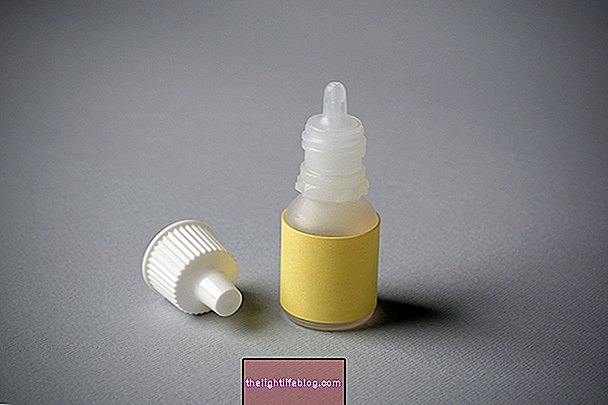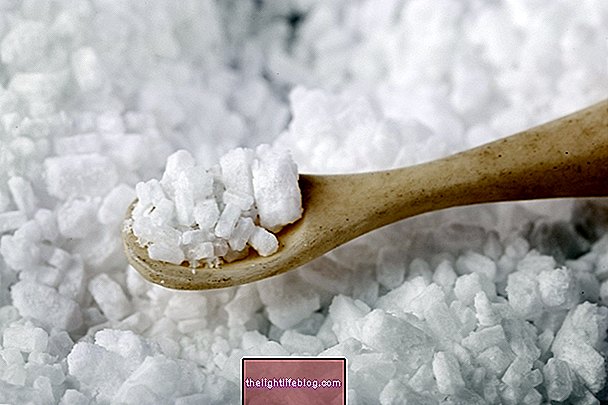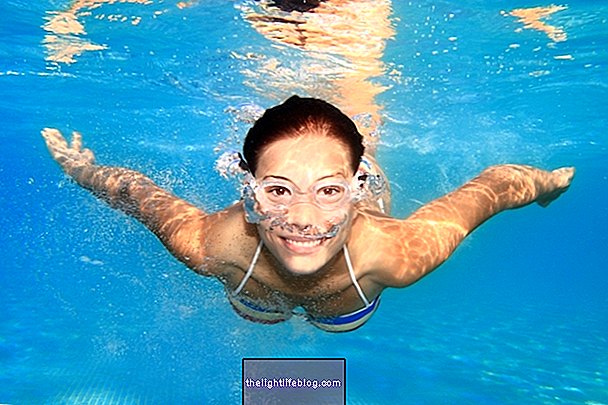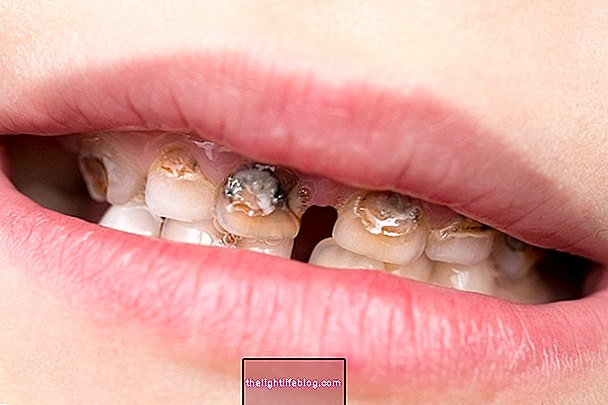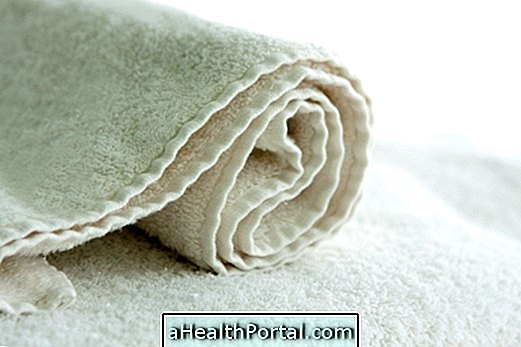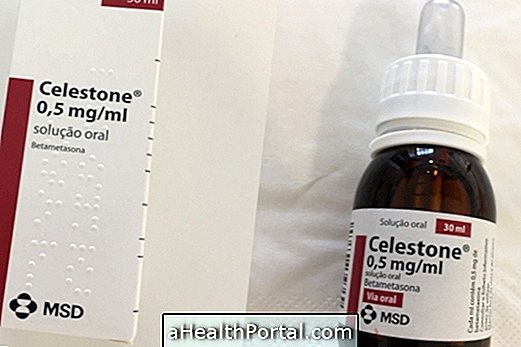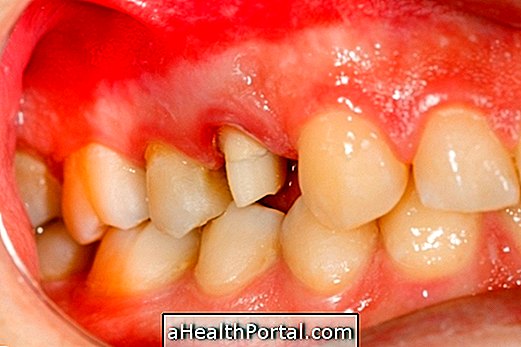Boric water is a solution composed of boric acid and water, which has antiseptic and antimicrobial properties and, therefore, is normally used in the treatment of boils, conjunctivitis or other eye disorders.
However, due to the fact that it consists of an acid and because it is not a sterile solution, boric acid is not usually recommended by doctors because it can aggravate the situation. However, if recommended, it is important that the person uses the water according to the doctor's guidance.

What is boric acid used for
Boric water has antiseptic, antibacterial and antifungal properties and can be used to help treat infections and inflammations such as:
- Conjunctivitis;
- Infections in the outer ear;
- Eye irritation, due to allergy, for example;
- Stye;
- Mild burns;
- Boils;
- Skin irritation.
Despite having an indication for these situations, its use should always be guided by a doctor, since the use of boric acid water with a high concentration of boric acid or its ingestion can have health risks.
In general, when indicated, boric acid water should be used 2 to 3 times a day, and should be applied with the aid of gauze or cotton in the place to be treated.
Possible health risks
Boric water can bring health risks when used without medical advice, when the concentration of boric acid is very high in the solution or when this water is ingested, as it is considered toxic and can trigger serious allergic reactions and respiratory problems, in addition to there may also be gastric and neurological changes and kidney failure, for example.
In addition, as it is a non-sterile solution, it is also possible for microorganisms to develop, which may worsen the condition to be treated. Some people reported that after using boric acid water they were diagnosed with worsening of the clinical picture due to infection by Staphylococcus aureus, Coagulase negative Staphylococcus, Streptococcus viridans, Morganella morganii and Escherichia coli.
In addition to the risk of infection, when boric acid is used in the eyes without medical advice, it can worsen irritation and cause dryness.
Was this information helpful?
Yes No
Your opinion is important! Write here how we can improve our text:
Any questions? Click here to be answered.
Email in which you want to receive a reply:
Check the confirmation email we sent you.
Your name:
Reason for visit:
--- Choose your reason --- DiseaseLive betterHelp another personGain knowledge
Are you a health professional?
NoMedicalPharmaceuticalsNurseNutritionistBiomedicalPhysiotherapistBeauticianOther
Bibliography
- ANVISA. Standardized list of drugs subject to simplified notification. Available in: . Accessed on 26 Aug 2020
- JOSÉ, Andrea C. K .; BRANCO, Bruno C .; OHKAWARA, Lilian E .; ZORAT, Maria Cecília; LIMA, Ana Luisa H. Ocular use of boric acid water: handling conditions and contamination occurrence. Arq Bras Oftalmol. Vol 70. 2nd ed; 201-207, 2007
